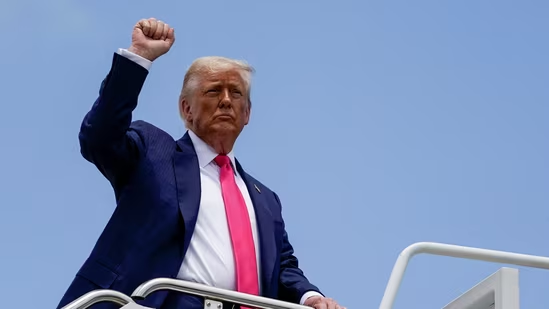Jakarta – In a significant development ahead of the August 1 global tariff deadline, the United States and Indonesia have finalized a new trade arrangement that adjusts earlier announced tariffs and opens broader market access between the two countries.
On Tuesday, U.S. President Donald Trump confirmed the agreement via Truth Social, stating that Indonesia will now face a 19% tariff—reduced from the previously declared 32%—on all goods exported to the U.S. The announcement came after a bilateral discussion with Indonesian President Prabowo Subianto, whom Trump described as “highly respected.”
“This landmark Deal opens up Indonesia’s entire market to the United States for the first time in history,” Trump said. He added that the agreement would provide full access for U.S. ranchers, farmers, and fishermen to Indonesia’s market of over 280 million people.
As part of the deal, Indonesia has committed to purchasing $15 billion worth of U.S. energy and $4.5 billion in American agricultural products. Additionally, the agreement includes an order for 50 Boeing aircraft, many of which will be the 777 series, strengthening commercial aviation ties.
In contrast to the fixed 19% tariff applied to Indonesian exports, U.S. goods exported to Indonesia will reportedly face no tariff or non-tariff barriers. Trump emphasized that goods transshipped from countries with higher tariffs would have the corresponding rates applied, avoiding potential loopholes in the trade structure.
The Indonesian government is currently preparing a joint statement with the U.S. to clarify further aspects of the agreement, including the reciprocal tariff mechanisms and broader commercial arrangements. “We will inform the public soon,” said Susiwijono Moegiarso from Indonesia’s Coordinating Ministry for Economic Affairs.
While Indonesia remains a mid-sized trading partner for the U.S.—its trade volume with America reached just under $40 billion in 2024—the agreement signals Washington’s continued strategy of leveraging tariffs to restructure trade access with Southeast Asian economies.
The new deal also follows a similar framework reached recently between the U.S. and Vietnam. According to Trump, ongoing negotiations with India and an interim deal with China reflect a broader shift toward what the administration calls “reciprocal access.”
The United States’ top imports from Indonesia last year included palm oil, electronics, footwear, car tires, natural rubber, and seafood products like frozen shrimp. With the new deal in place, the trade dynamics between the two nations are expected to undergo a notable transformation.







